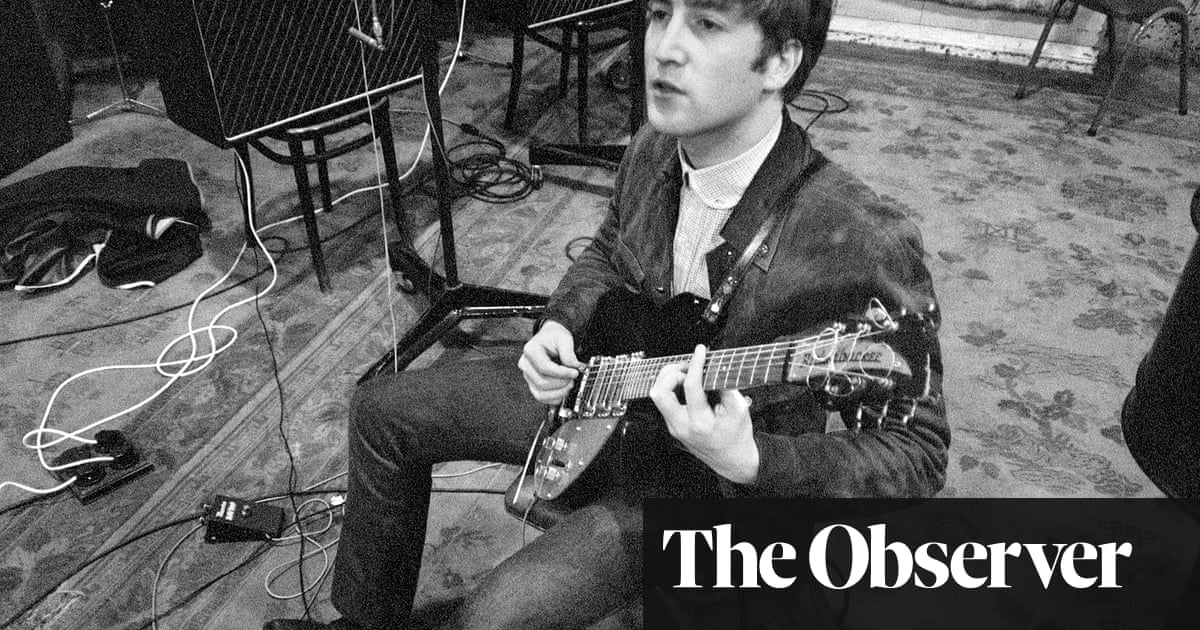
From 1999 until the present, I have been the chief film critic of the Guardian; before that it was the legendary Derek Malcolm who held the job from the early 70s, and now at the age of 89, is far from retired, regularly attending festivals including Venice and Goa, and contributing to the Sky Arts TV show Discovering Film.
How has the job of film critic changed between his day and mine? I went down for lunch and a comparison of notes with Derek at his house in Deal, Kent, where he lives with his wife, the historian and journalist Sarah Gristwood.
How did Derek get into the film critic business? “I was on the Gloucestershire Echo and wrote to Brian Redhead, who was the Manchester Guardian’s arts editor, asking if I could write about the Cheltenham literary festival. He said I might send my piece in and it was published, and he told me to come and see him. I knew Redhead was a socialist and if he knew I was at Eton and Oxford I would never get a job. So he asked me where I went to school and I said: ‘Somewhere near Slough.’ I ended up as a designer, and then called down to London where I was the late-night sub and the only one who could read the reviews by Neville Cardus [the renowned music critic and cricket correspondent] who submitted his copy in longhand. I became the letters editor, and – because I had been an amateur jockey in the 1960s — the racing correspondent.
“I was also the deputy drama critic to Philip Hope-Wallace, who took great delight in sending me to review Little Malcolm and His Struggle Against the Eunuchs. I became the film critic because the editor fired the existing critic, Richard Roud, for writing a one-word review of The Sound of Music — he just wrote ‘No’. Just that.”
My own route to the job is in some ways as random as that. I did an English degree and then a PhD in 17th-century English prose. Then I decided that academe wasn’t for me and took a job on the Diary column of the Evening Standard, where I wound up doing almost everything: leaders, columns, theatre reviews, TV reviews, book reviews, except – oddly enough – film reviews.
During the Tony Blair Cool Britannia general election of 1997, the editor Max Hastings asked me to write a spoof version of the diaries of Alan Clark, the roguish Tory MP. Clark sued; it went to court and I made history of a sort as the first satirist whose subject had actually sued him for “passing off”. The case amused the Guardian executive Ian Katz (now Channel 4 director of programmes) who had a great love of mischief, and he recommended me for the job of film critic to the editor, Alan Rusbridger, on the basis that a fresh voice was needed. So I had never had any formal training in film. “No, nor did I!” interjects Derek.
So how has the workload changed? I have to review six films a week, deciding on the lead review, which will be 600-700 words and the rest get 300 each. That sounds like an awful lot to Derek: “We only had three or four a week, and sometimes it was only two! And I didn’t review the films separately: it was a continuous roundup column which might be 800 words, though sometimes twice that.” But Derek for some years in the early 80s combined his film critic job with being artistic director of the London film festival, which was a huge task to take on.
Pre-Covid, much of my working days would be in Soho, in central London, going to little screening theatres, where the films are shown to critics and journalists in advance. And until recently, doing that was one of the last connections to the racier, shabbier, more louche side of Soho itself. But Derek was dismayed when I told him that some of the more famous screening rooms have now disappeared. The iconic 20th Century Fox building in Soho Square is gone, a victim of the Disney takeover, and so is the handsome Columbia building in Golden Square.
And the mood of these daytime screenings has got periodically more businesslike and sober. When I first started out, it was not entirely unusual for the producers to ask you out to a lavish lunch with wine afterwards – Ismail Merchant did this after a screening of his film version of The Golden Bowl.
But Derek tells me these things were much more commonplace in his day. “We had the ‘Carry On’ lunches! After the press show of every Carry On film, [the producer] Peter Rogers invited us to L’Escargot in Greek Street for a lavish lunch with the entire cast who would complain bitterly to us about how awful the film was, how they only got one take for each scene, how terrible the pay was and they would end up squabbling among themselves. However, I do have to say the reviews were often better after a good lunch.”
Derek and I see each other at Cannes a lot, and he is horrified at the accelerated, hyper-instantaneous business of criticism at festivals now. In his era, and the early years of mine, it was a more thoughtful and leisured business of going to see these new international films and brooding on them without needing to write much. Now everything has to be written about, tweeted, Facebooked, Instagrammed and YouTubed about (I have all these accounts plus my own YouTube channel) – because online film reviews drive site traffic. I find it quite exciting but for Derek it’s a bit neurotic: “Oh no. Although for some years I did produce, with Sarah, a daily Cannes page for the international edition that was printed in Marseilles.”
One thing that I do have in common is doing onstage events, sponsored by the Guardian. At the Toronto film festival recently, I hosted a Q&A with Glenn Close and another with Tim Bevan and Eric Fellner of Working Title Films. Derek himself chaired onstage events with legendary names like Robert Mitchum, Gene Kelly and Clint Eastwood. “I was reviled by Time Out for doing those,” says Derek. Because they were lowbrow? I ask. “No – because they were jealous!”
I ask Derek what he thinks of the online Twitter acrimony that is often the weather in which debate takes place. He is indifferent to it, because he is not on Twitter any more. But he adds: “I think of myself as a ‘reviewer’ rather than a ‘critic’. As a ‘reviewer’ I’m all right.” I know what he means. Sometimes it is more disarming and modest to announce yourself as a reviewer. But often you have to shoulder the burden of being a critic, of making statements and judgments that are going to irritate and even infuriate the film-makers themselves. And what Derek and I also have in common is an awareness that a good review, for a young film-maker (particularly a female film-maker, a film-maker of colour, or any film-maker who is otherwise marginalised from the mainstream) is going to make all the difference and it has always been the job of the critic to seek out the talent — even more so in the digital age when film-lovers might feel themselves swamped with content.
“How long do you think you’re going to go on?” Derek asks me, towards the end of our meeting. I answer, honestly, that I don’t know: as long as the paper and the readers will have me. And Derek replies: “I retired because I couldn’t stand the mediocre films: it was the secret to my lack of success. And I was less generous a critic than you.” Maybe it’s true. But I found myself thinking about how much we have in common.












